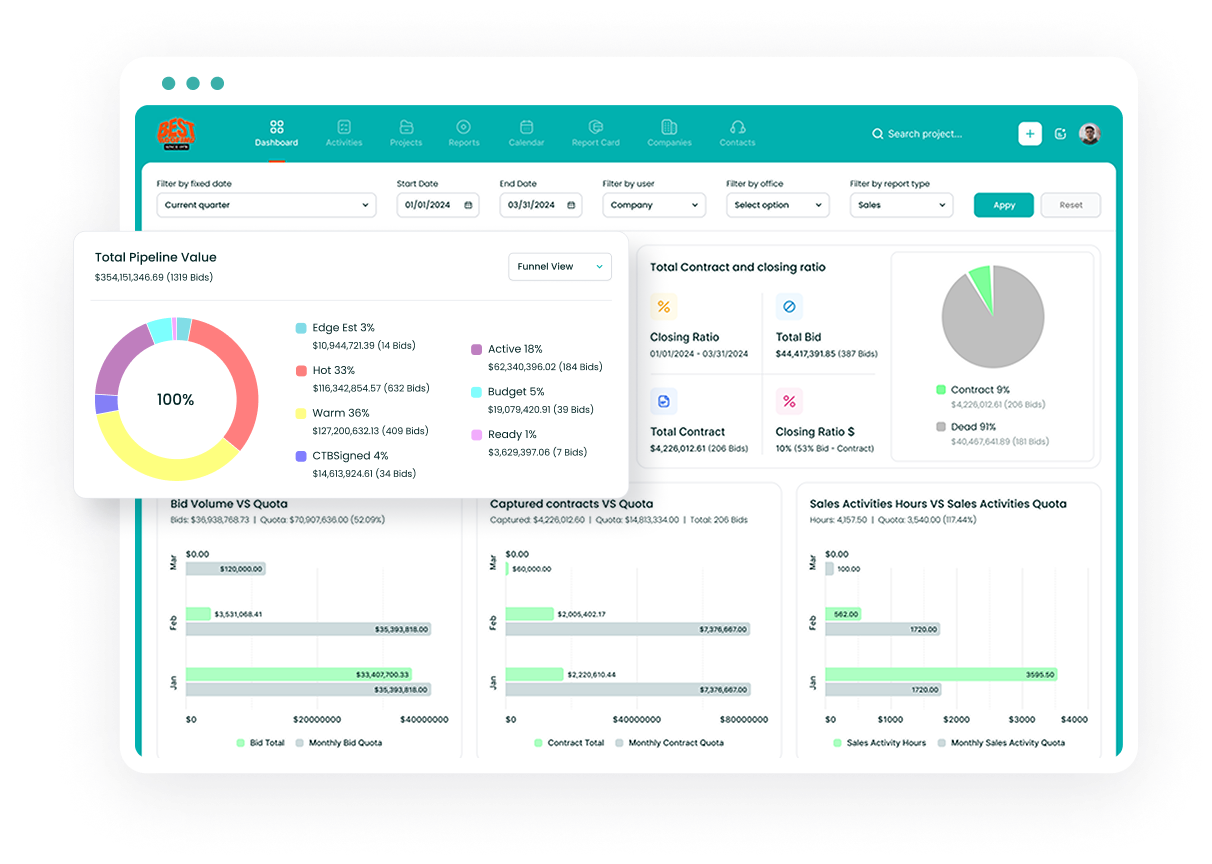What is the Main Function of Data Management?
One of the biggest challenges in construction is managing the large amounts of data generated by various stakeholders, including architects, engineers, contractors, and subcontractors. Without proper data management, important information can be lost or overlooked, leading to errors, delays, and cost overruns.
Effective data management practices, such as leveraging a CRM, help construction companies avoid these issues and improve their operations. Data management can provide key players access to up-to-date information, reducing the risk of errors and miscommunication. It can also facilitate accountability between teams, allowing them to work more efficiently and effectively.
In addition, effective data management can help construction companies track project progress and identify areas for improvement. By analyzing data on project costs, timelines, and quality, companies can identify patterns and trends that can inform future decision-making.
What are Common Ways to Manage Data in Construction?
Various methods of data management are used in the construction industry, though some yield better results than others. Choosing the best fit for your construction business requires weighing the pros and cons of each option and customizing your choice to fit your needs.
-
Paper-based Data Management
Pros: Paper-based systems are often seen as more traditional and reliable. They involve keeping physical records of data, often in the form of spreadsheets, notebooks, or binders. This approach can be useful for small-scale data collection.
Cons: Paper-based systems can quickly become unwieldy as the amount of data grows. Additionally, paper-based systems are often vulnerable to loss or damage, which can result in the loss of valuable data.
-
Software-based Data Management
Pros: Software-based systems offer a more modern and efficient approach to data management. These systems are designed to be scalable, allowing for the storage and analysis of large amounts of data. They also offer features such as automated backups and data recovery, which can help to prevent the loss of important data.
Cons: Software-based systems require a greater financial investment and may be more difficult to implement for users who are not tech-savvy.
Overall, data management is essential for construction companies looking to improve their operations and stay competitive in a rapidly changing industry. By implementing effective data management practices, companies can reduce costs, improve quality, and enhance their overall performance. Learn how Followup CRM can help your construction business manage data by scheduling a live demo.


